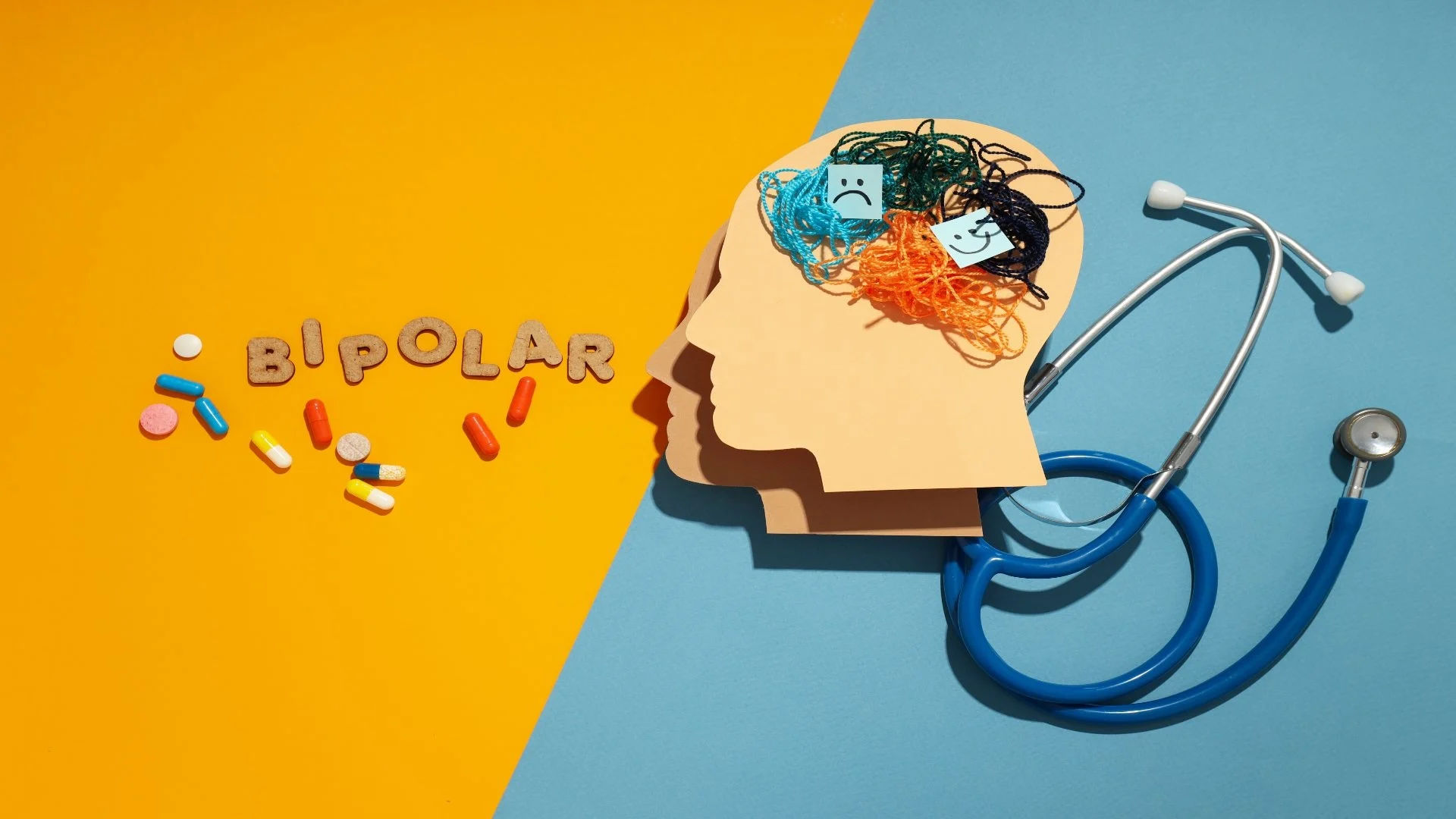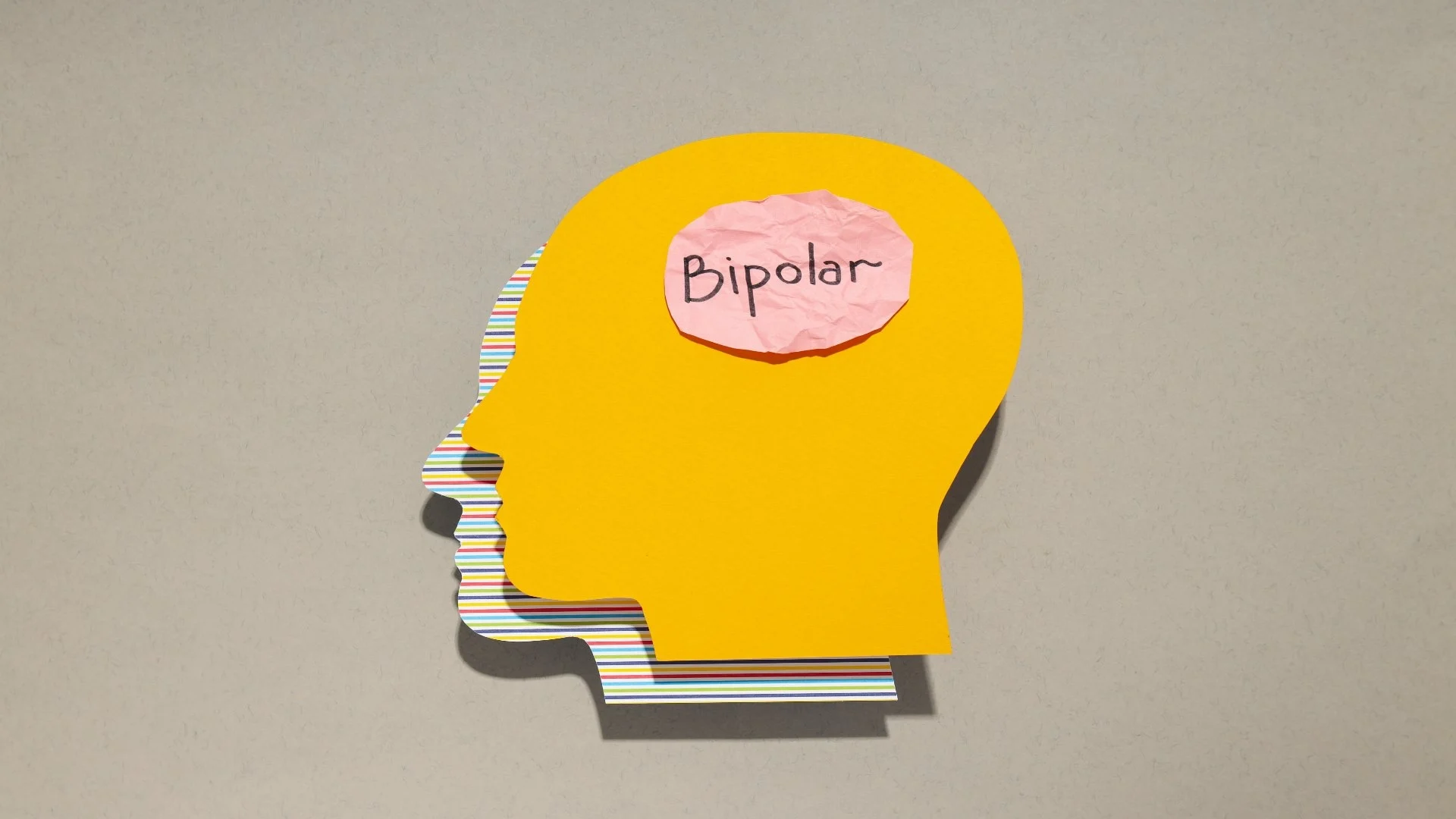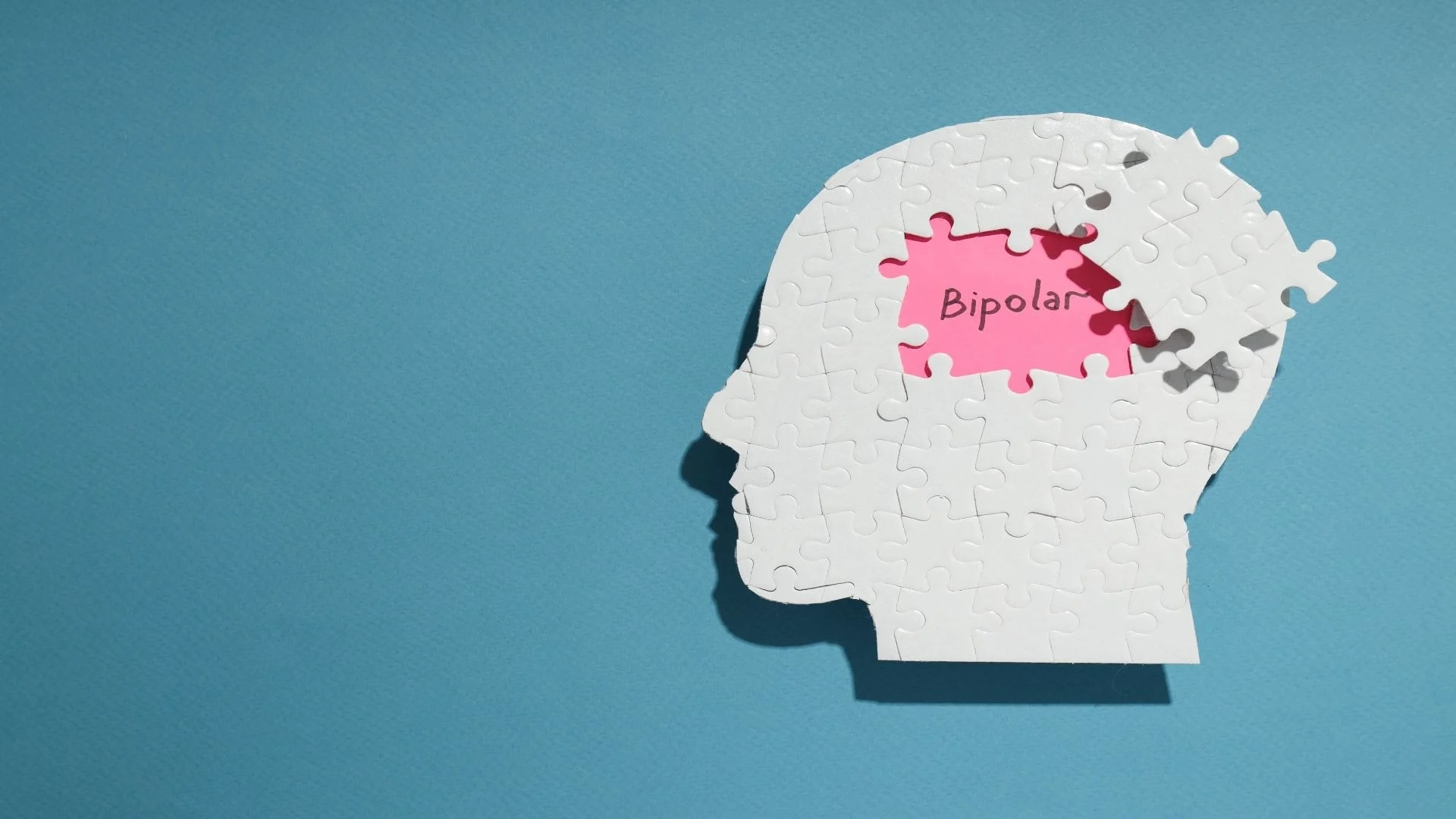Mental Health
How to Treat Bipolar Disorder

Discover how to treat bipolar disorder with practical strategies, including therapy, medication, and lifestyle changes, to achieve lasting recovery.
What are the main treatments for bipolar disorder?
How to treat bipolar disorder typically involves a combination of medication and psychotherapy. Mood stabilizers, antipsychotics, and antidepressants help regulate symptoms, while therapies like Cognitive Behavioral Therapy (CBT) provide coping strategies. A comprehensive treatment plan improves long-term stability and quality of life.
Can lifestyle changes help manage bipolar disorder?
Yes, lifestyle changes can significantly improve bipolar disorder management. Establishing a consistent sleep schedule, engaging in regular physical activity, and reducing stress through mindfulness or relaxation techniques can help stabilize mood. A structured routine supports treatment and minimizes the likelihood of mood swings.
Is medication necessary for treating bipolar disorder?
Medication is often essential for managing how to treat bipolar disorder effectively. Mood stabilizers and antipsychotics help prevent severe mood episodes, but treatment works best when combined with therapy and healthy lifestyle adjustments. Medication plans should be tailored to each individual’s needs.
How does psychotherapy assist in managing bipolar disorder?
Psychotherapy plays a vital role in how to treat bipolar disorder by helping individuals recognize mood patterns, develop healthy coping strategies, and prevent relapses. CBT and family therapy offer tools to manage symptoms, strengthen relationships, and improve overall emotional well-being.
What should I do if a loved one shows signs of bipolar disorder?
If a loved one exhibits symptoms of bipolar disorder, encourage them to seek professional help immediately. Early intervention improves outcomes and helps establish a personalized treatment plan. Providing emotional support and education can also significantly impact their recovery journey.
How to treat bipolar disorder is a question many individuals and their loved ones face when dealing with this challenging condition. Bipolar disorder can cause intense mood swings, affecting emotions, energy levels, and daily life. These shifts can disrupt relationships, work, and overall well-being without proper treatment.
However, with the right approach—combining therapy, medication, and healthy lifestyle choices—stability and recovery is possible. If you or someone you care about is struggling with bipolar disorder, understanding effective treatment options can provide hope and a path toward a healthier, more balanced life.
Understanding Bipolar Disorder

Bipolar disorder is a mental health condition characterized by extreme mood swings that include emotional highs (mania or hypomania) and lows (depression). These fluctuations can significantly impact daily life, relationships, and overall well-being. Individuals may struggle with work, social interactions, and self-care without proper treatment. Therefore, it is imperative to understand How to treat bipolar disorder
Families also feel the effects of bipolar disorder. Watching a loved one experience unpredictable mood shifts can be emotionally challenging, often leading to stress, confusion, and strained relationships. Education and support are crucial in helping individuals and their families effectively manage the disorder.
Seeking comprehensive treatment is essential for long-term stability and recovery. A combination of medication, therapy, lifestyle adjustments, and support systems can help individuals regain control and live fulfilling lives.
At The Edge Treatment Center, we provide personalized treatment plans to address both mental health and co-occurring substance use disorders, ensuring a holistic approach to recovery.
There are three primary types of bipolar disorder:
Bipolar I Disorder – Defined by manic episodes lasting at least seven days or severe mania requiring hospitalization. Depressive episodes often occur but are not required for diagnosis.
Bipolar II Disorder – Characterized by hypomanic episodes (less severe than full mania) and major depressive episodes. Unlike Bipolar I, it does not include full manic episodes.
Cyclothymic Disorder (Cyclothymia) – A milder form of bipolar disorder with numerous periods of hypomanic and depressive symptoms that last for at least two years but do not meet the full criteria for a manic or depressive episode.
Common Symptoms of Manic and Depressive Episodes
People with bipolar disorder experience two primary mood episodes: mania (or hypomania) and depression.
Symptoms of a Manic Episode:
Increased energy, restlessness, or irritability
Racing thoughts and rapid speech
Decreased need for sleep
Impulsivity, engaging in risky behaviors (spending sprees, reckless driving)
Grandiose beliefs or unrealistic confidence
Symptoms of a Depressive Episode:
Persistent sadness or hopelessness
Loss of interest in activities once enjoyed
Fatigue or low-energy
Difficulty concentrating or making decisions
Suicidal thoughts or self-harm tendencies
Managing bipolar disorder requires professional intervention, as untreated symptoms can lead to severe consequences, including substance use, self-harm, or difficulty maintaining relationships and responsibilities.
The Edge Treatment Center’s Approach to Bipolar Disorder
At The Edge Treatment Center, we understand that bipolar disorder affects each person differently, which is why we create personalized treatment plans tailored to the individual’s needs.
Our approach integrates evidence-based mental health therapies with addiction recovery support, providing a comprehensive solution for those struggling with co-occurring disorders.
Overview of Personalized Treatment Plans
Our treatment programs focus on:
Comprehensive Assessments – Evaluating symptoms, medical history, and any co-occurring conditions like addiction.
Medication Management – Prescribed and monitored by medical professionals to ensure effectiveness and minimize side effects.
Therapy & Counseling – Including Cognitive Behavioral Therapy (CBT), Dialectical Behavior Therapy (DBT), and family therapy to address thought patterns and emotional regulation.
Lifestyle Coaching – Helping individuals develop healthy routines, including sleep hygiene, nutrition, and physical activity.
Integration of Mental Health and Addiction Treatment
Bipolar disorder and substance abuse often occur together, as individuals may self-medicate with drugs or alcohol to manage their mood swings.
The Edge Treatment Center specializes in dual diagnosis treatment, ensuring that both mental health conditions and addiction are addressed simultaneously. Our integrated approach includes:
Detox & Medication-Assisted Treatment (MAT) – Safe withdrawal management under medical supervision.
Psychotherapy for Addiction & Bipolar Disorder – Addressing emotional triggers and coping mechanisms to prevent relapse.
Holistic Healing & Support Groups – Providing alternative therapies like mindfulness, yoga, and peer support to encourage long-term stability.


We’re Here To Help You Find Your Way
Would you like more information about mental health or drug addiction? Reach out today.
Practical Treatment Strategies for Bipolar Disorder
Successfully managing bipolar disorder requires a comprehensive treatment approach that includes medication, therapy, lifestyle changes, and strong support systems. At The Edge Treatment Center, we prioritize personalized care to help individuals achieve lasting stability and recovery.
Medication Management
Medication plays a crucial role in stabilizing mood swings and preventing relapse. The right medication plan varies for each person; finding the most effective combination may take time.
Types of Medications Used in Bipolar Disorder Treatment:
Mood Stabilizers (e.g., Lithium, Valproate, Lamotrigine) – Help control manic and depressive episodes.
Antipsychotics (e.g., Quetiapine, Olanzapine, Risperidone) – Used for severe mania or treatment-resistant depression.
Antidepressants (e.g., Fluoxetine, Sertraline) – Used cautiously, often alongside mood stabilizers, to prevent triggering mania.
Importance of Individualized Medication Plans
At The Edge Treatment Center, our psychiatric team carefully assesses each individual’s medical history, symptoms, and response to treatment. Medication management is not one-size-fits-all; adjustments are made to minimize side effects while maximizing effectiveness.
Psychotherapy for Bipolar Disorder
Therapy is essential in helping individuals understand their condition, recognize triggers, and develop coping strategies.
Cognitive Behavioral Therapy (CBT) and Its Benefits
CBT helps individuals:
Identify and change negative thought patterns.
Develop healthier coping mechanisms for mood swings.
Recognize early warning signs of manic or depressive episodes.
Family-Focused Therapy for Support Systems
Bipolar disorder doesn’t just affect the individual—it impacts loved ones as well. Family therapy helps:
Educate family members about bipolar disorder.
Improve communication and conflict resolution skills.
Strengthen relationships and create a more supportive home environment.
Lifestyle Modifications for Stability
While medication and therapy are crucial, lifestyle changes can significantly improve symptom management.
Establishing Regular Routines and Sleep Patterns
Consistent sleep schedules help regulate mood and reduce the risk of manic or depressive episodes.
Sticking to a structured daily routine minimizes stress and unpredictability.
Incorporating Physical Activity and Stress-Reduction Techniques
Regular exercise releases endorphins, which help stabilize mood.
Mindfulness, meditation, and yoga can reduce stress and anxiety.
Avoiding alcohol and substance use is critical, as these can worsen symptoms.
Support Systems: The Power of Community and Education
Strong support networks are essential for long-term recovery.
Engaging with Support Groups and Community Resources
Peer support groups provide encouragement and shared experiences.
Community mental health programs offer ongoing education and crisis intervention.
Educating Family Members to Foster Understanding
Family education helps loved ones recognize symptoms and offer appropriate support.
Open communication reduces stigma and isolation, making it easier to seek help when needed.
The Edge Treatment Center’s Comprehensive Care
At The Edge Treatment Center, we go beyond symptom management. We offer a holistic, multidisciplinary approach to help individuals achieve long-term stability and recovery.
Our Multidisciplinary Team Approach
Our team includes:
Psychiatrists and medical professionals for medication management.
Licensed therapists for individualized and group therapy.
Wellness coaches to guide lifestyle changes.
Continuous Support and Aftercare Programs
Recovery doesn’t stop after initial treatment. Our aftercare programs provide:
Ongoing therapy and medication management.
Relapse prevention strategies to help maintain stability.
Alumni support groups for continued encouragement.

We’ll Lead You to New Heights
Do you have more questions about mental health or drug addiction? Reach out.
Struggling with Bipolar Disorder? We Can Help

How to treat bipolar disorder effectively requires the right combination of medication, therapy, lifestyle changes, and strong support systems. At The Edge Treatment Center, we understand that every individual’s journey is unique, so we offer personalized treatment plans designed to help you achieve lasting stability and recovery.
Whether you or a loved one is struggling with bipolar disorder and co-occurring addiction, our expert team is here to provide the support and care you need. Don’t wait to take control of your life—reach out today and start your path to healing.

We’re Here To Help You Find Your Way
If you or a loved one is struggling with addiction, there is hope. Our team can guide you on your journey to recovery. Call us today.
Written by
The Edge Treatment Center
Reviewed by
 Jeremy Arzt
Jeremy ArztChief Clinical Officer
Mental Health
October 8, 2025
